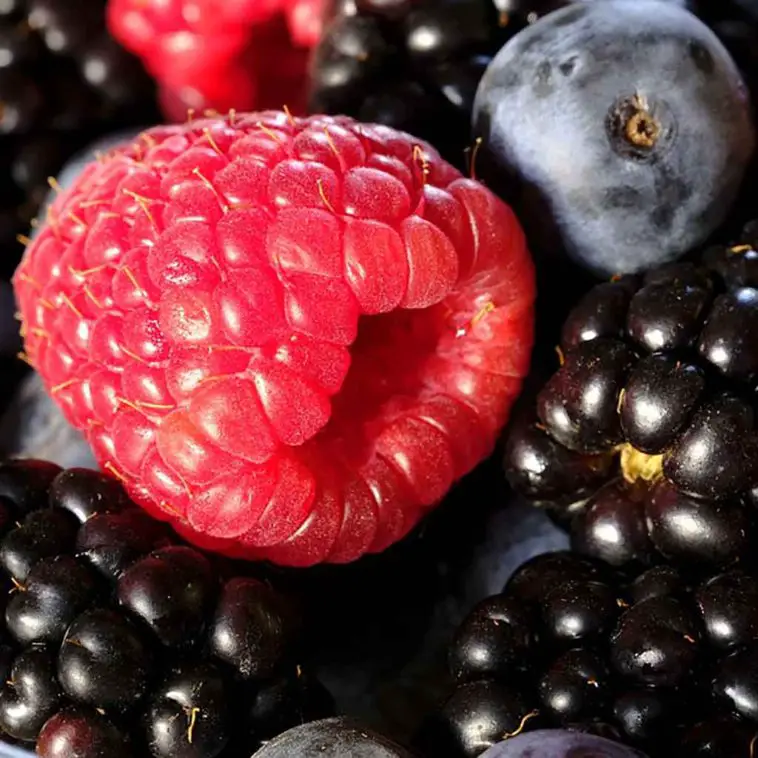Cats being strict carnivores eat meat to acquire nutrients and proteins, but can raspberries offer the same? Well, Raspberries contain very useful nutrients, such as vitamin A, C and k, magnesium, potassium, calcium, manganese, and dietary fiber.
These nutrients are not only important for increasing brainpower and fighting obesity in humans, but also to our fur friends.
As such, you can feed your cat safely with raspberries, but only as an occasional treat. Why? Read on to find out.
Can Cats Eat Raspberries?
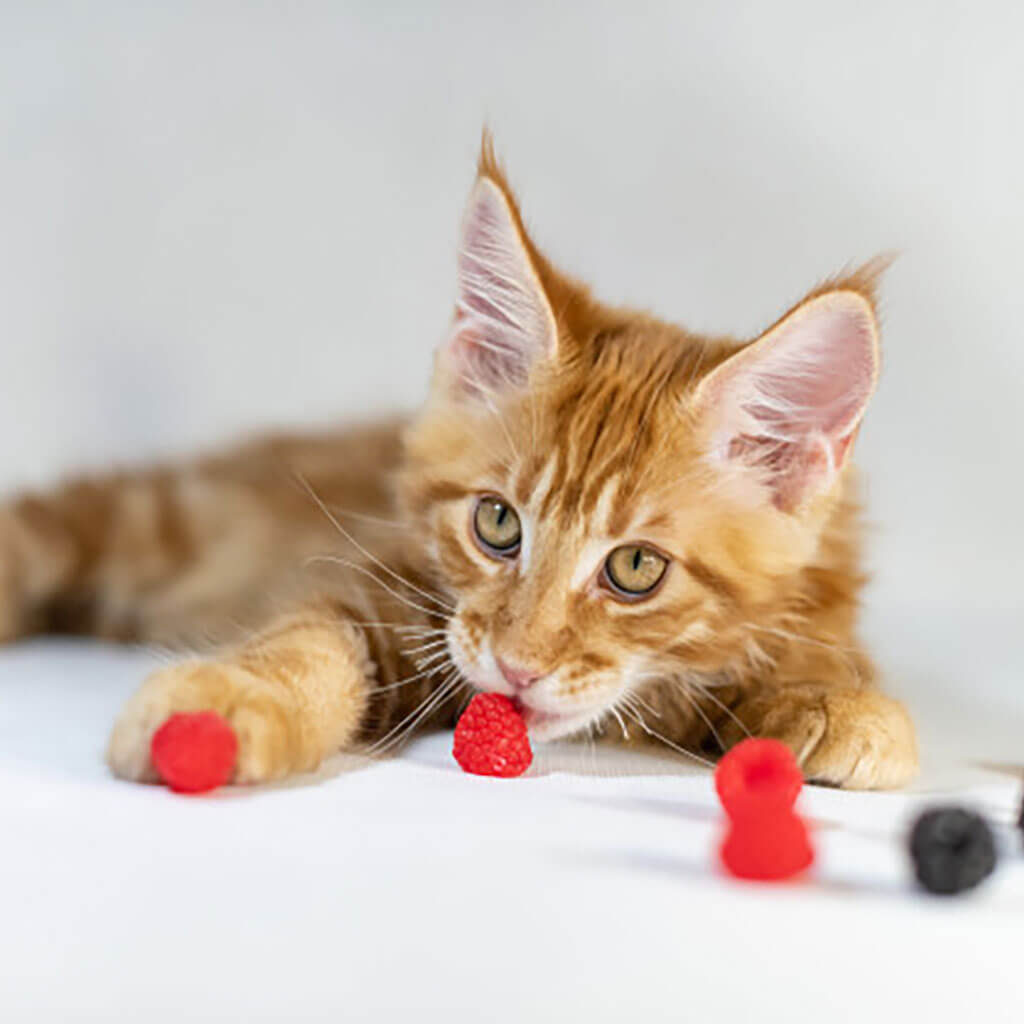
For a fact, cats are obligate carnivores, which is a fancy way of saying that their natural diet is primarily meat. This means that domestic cats require their natural protein absorption from meat.
Similarly, their wild counterparts rely on small rodents like mice, as well as birds, frogs, and tiny reptiles for their daily nutritional intake.
That said, they can and do eat raspberries, not for sustenance but just to indulge their curiosity. Additionally, these fruits contain nutrients that are useful to a cat’s system. Its, however, worth noting that cats should not be allowed to consume raspberries in large quantities but only eat them as treats.
Do Cats like to Eat Raspberries?
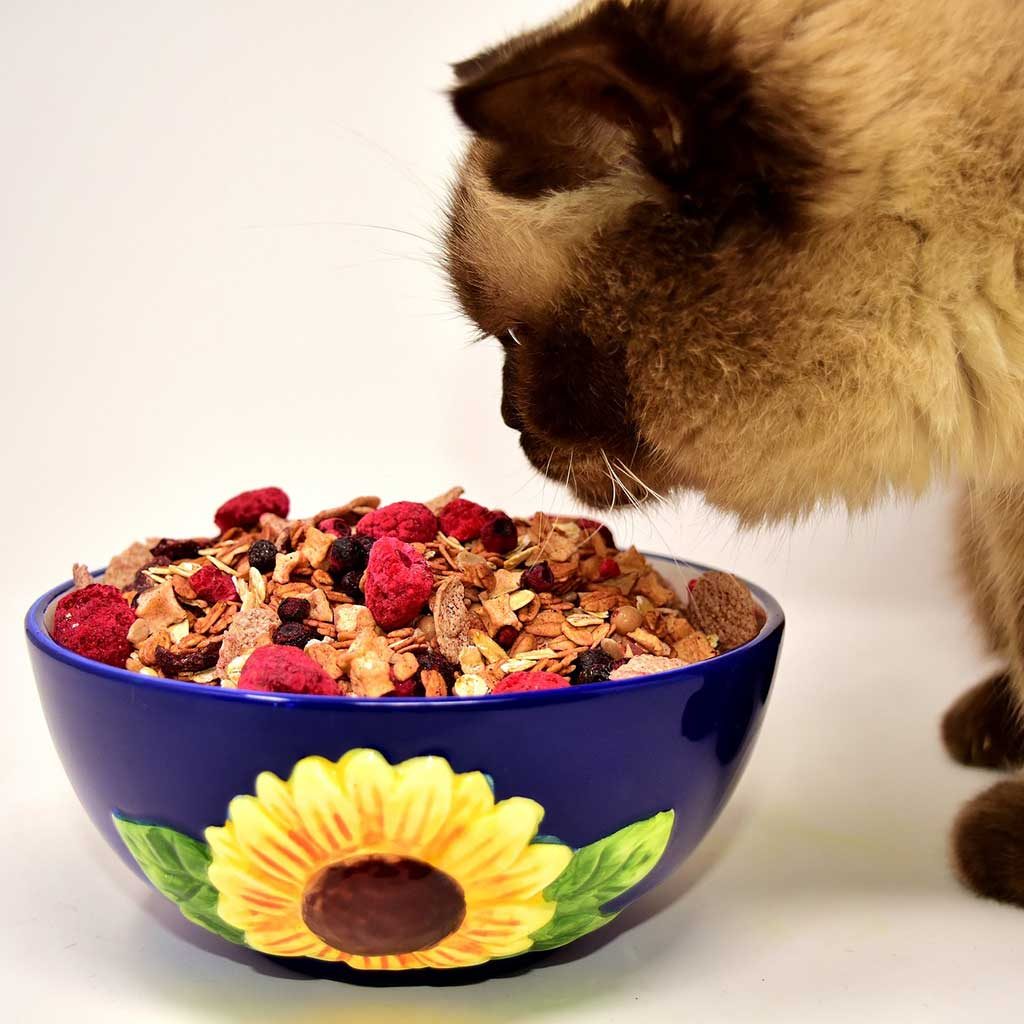
Some cats might be wondering what exactly are Raspberries? They are edible plant species found in the rose family. There are various types of raspberries that include the common red raspberry, which goes by the scientific name Rubus Idaeus. In the US they are mostly cultivated in California, Washington, and Oregon.
Are raspberries liked by cats? Our felines love crinkly and shiny things either edible or inedible. So, due to its vibrant color and fresh aroma, raspberries may attract your cat’s attention leading to them to enjoy munching on raspberries.
Even though cats may like to eat them because of its attractive appearance they shouldn’t be introduced regularly into their diet because they contain Xylitol, a harmful compound.
Also Read: Can Cats Drink Orange Juice?
Should Cats Eat Raspberries?
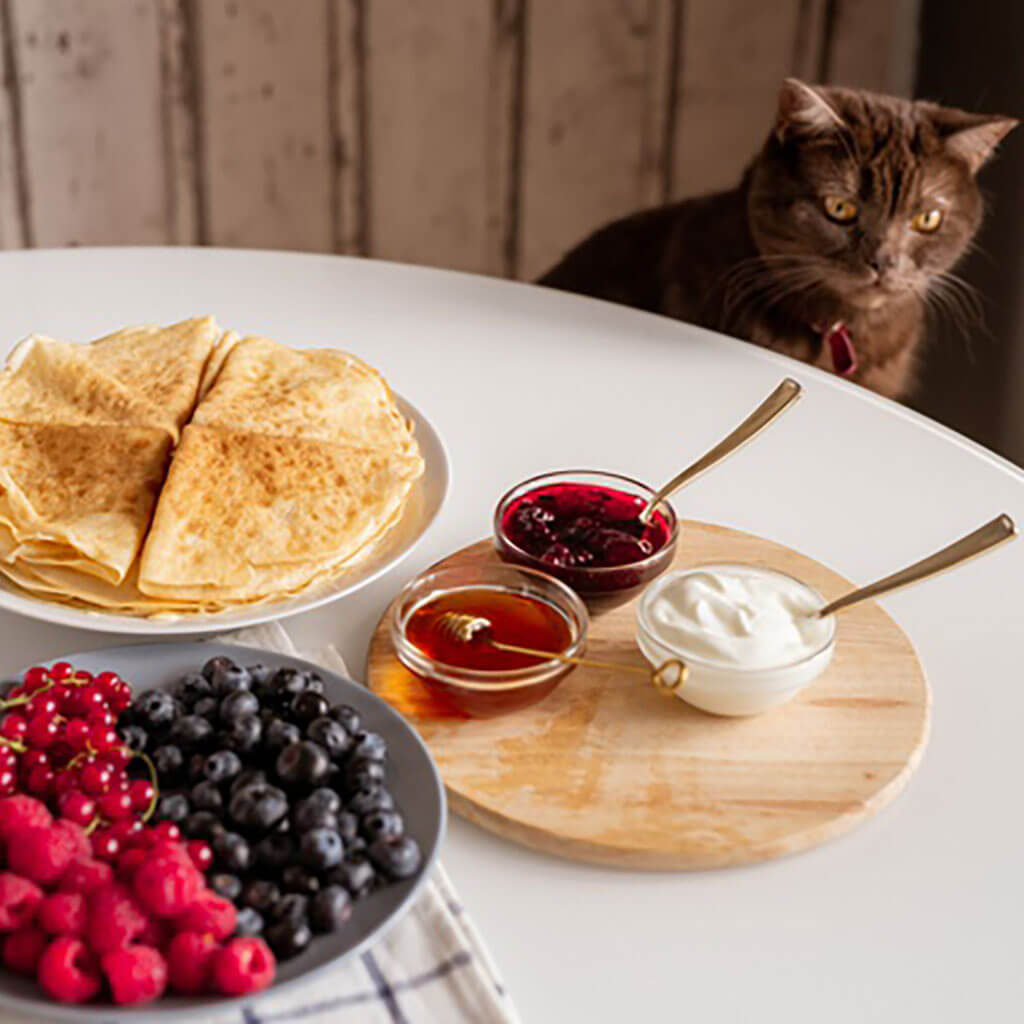
As a pet owner you’re justified to be curious of what to share with your cat and what not to. Understandably, it can be hard not to give your cat what you personally enjoy eating, with your cat watching you munch away. So, how safe are raspberries for cats?
Rubus Idaeus and strawberries have similar antioxidants but only a quarter as much as blueberries and half as much as blackberries.
These antioxidants aid against cell damage as well as reducing risk of certain chronic. Such ailments include heart disease, diabetes, obesity and cancer, diseases that affect both humans and felines.
What’s more, a study discovered that ellagic acid, a raspberry antioxidant, may repair damaged DNA. As long as they are fed in the correct amount, they are absolutely safe for cats.
Why do we say ‘correct amount’? This is because raspberries contain Xylitol, a chemical compound that is harmful to cats when taken in large quantities.
Unlike herbivores and omnivores, cats are limited to synthesizing certain amino acids. Most of these are essential nutrients that can only come from flesh. All this has to do with that their digestive system that is not made for plants but rather meat proteins.
Let’s explain further…
How is Xylitol Harmful to Cats?
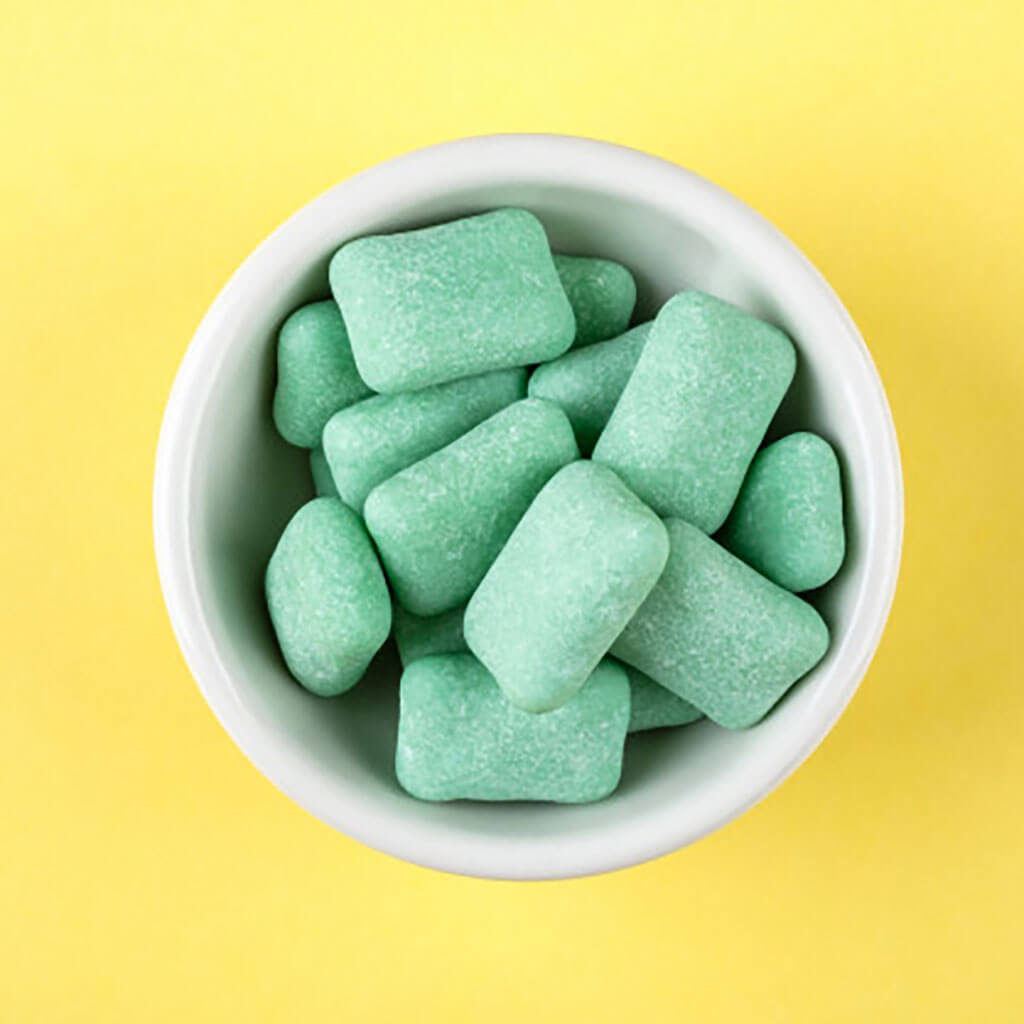
What exactly is Xylitol and why should it concern you as a cat owner?
For starters, the compound is an additional sweetener and a common substitute for sugar nowadays. Whether you know or not, you enjoy this sweetener probably on daily basis. It is found in many products including toothpaste, baked goods, candy and gum.
But why is Xylitol not safe for our cats?
In particular, cats are less likely to digest xylitol unlike human beings. With incomplete digestion come both short and long term problems to your pet.
For example, in the long term, xylitol can lead to liver damage, liver failure and even death in cats. Didn’t the wise say that curiosity killed the cat and not the pet owner right? Therefore, you were on track for being curious about raspberries.
And just so you know, the America Society for the Prevention of Cruelty to Animals (ASPCA) advices that when consumed in large quantities, Xylitol can be toxic to pets.
How Many Raspberries Should your Cat Eat at a Go?

Due to excess Xylitol in raspberries that may cause liver problems and clotting abnormalities, you should control the amount of raspberries that you four legged friend consumes.
You shouldn’t make feeding raspberries the norm but rather give them the recommended amount of 1-2 raspberries in one sitting. Most importantly, cats should only eat raspberries only once or twice a week. Over and above, fruits are better served occasionally and only as treats.
If your cat ends up eating lots of raspberries, you will know from symptoms such as vomiting and dehydration.
Can Cats Eat Raspberries? Various Benefits of Raspberries to Cats
As mentioned earlier, raspberries contain compounds which are beneficial to cats. These nutrients help in improving the health of both you and your pet. Without going into much detail, here is a quick look at some of the benefits of feeding raspberries to cats.
- Reduces chances of suffering from cancer
- Aids in increasing brain power
- Reduces the risk of suffering from arthritis
- Helps in fighting obesity
- Reduces the risk anxiety
- Development of stronger bones
- Boosts immunity
- Reduces the risk of hypertension
Likely Side Effects of Cats Eating too Many Raspberries
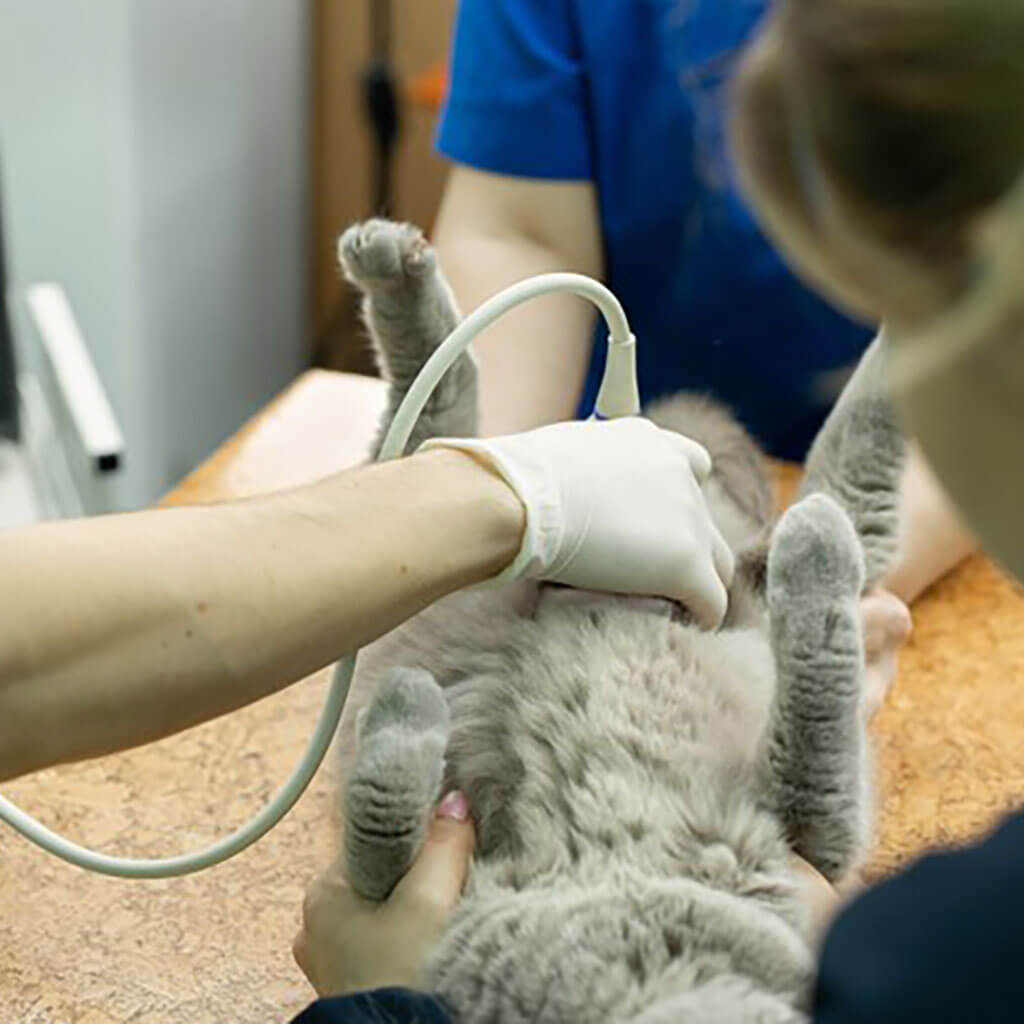
When fed with too many raspberries, and depending with your fur friend’s metabolic system, the chances of possible side effects are very high. One of the most life threatening and immediate effect being kidney toxicity as the organ tries to expel Xylitol from your cat’s system.
Other possible side effects include,
- Chances your cat may suffer from gastrointestinal distress that may lead to diarrhea
- May cause smelly feces
- May lead to vomiting which leads to dehydration.
- Lead to abdominal pains brought about by indigestion
- May suffer from diabetes due to high sugar levels
Best Way to Feed your Cat Raspberries
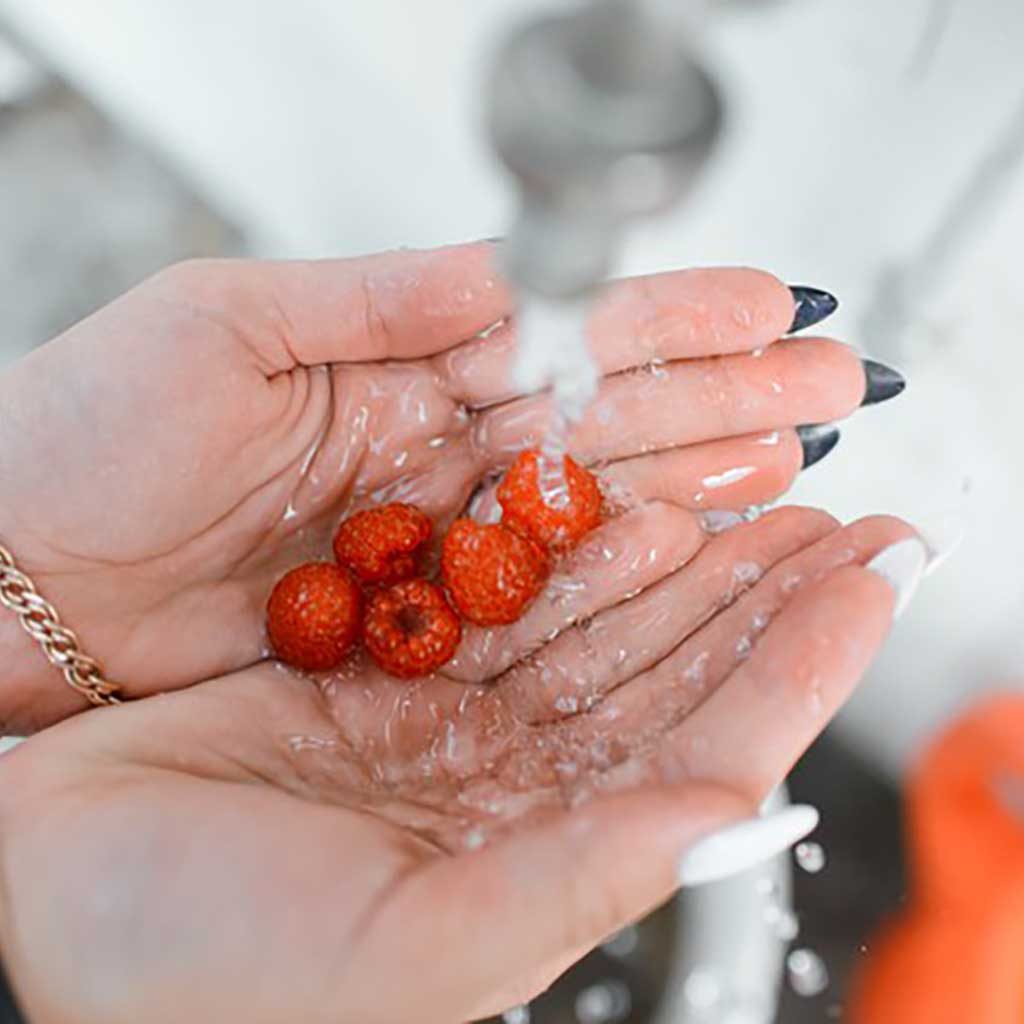
Cats are the masters of cleanliness as recognized by Plutarch, an ancient Greek historian and philosopher. This means that they keep themselves clean and they expect the same level of cleanliness on what they feed on.
So, remember to wash the fruits plus the feeding bowl to remove any dirt and bad odor. This is because cats have a high sense of smell said to be fourteen times stronger than that of humans.
When it comes to preferences, raspberries can be served either frozen or fresh. Cats really love fresh raspberries due to the sweet scent and rich red color.
However, on a hot day, frozen raspberries are the best for your cat for cooling their bodies. Also, when frozen, raspberries help keep their nutritional value. Don’t forget to always wash the raspberries before feeding them to your beloved cat.
Since raspberries are elegant red, fruitfully, luscious, and fresh-smelling, your cat can reach for them very when not kept out of reach. This may lead to excess consumption of Xylitol. Avoid this by keeping them in sealed bags or plastic containers.
Steps to Take when your Cat Eats Excess Raspberries
As many pet parents can attest, cats are resourceful and intelligence. Despite your best efforts, it’s plausible that they will get to the raspberries and have their fill. What are you to do when cats your cat eats raspberries excessively? Here are some pointers:
- Place your cat away from the raspberries to prevent them from eating more
- Call your vet or APSCA Animal Poison Control Center on [8888] 426 – 4435 immediately
- Do not induce vomiting and just follow the professional’s advice
Can Cats Eat Raspberries Flavored Foods?
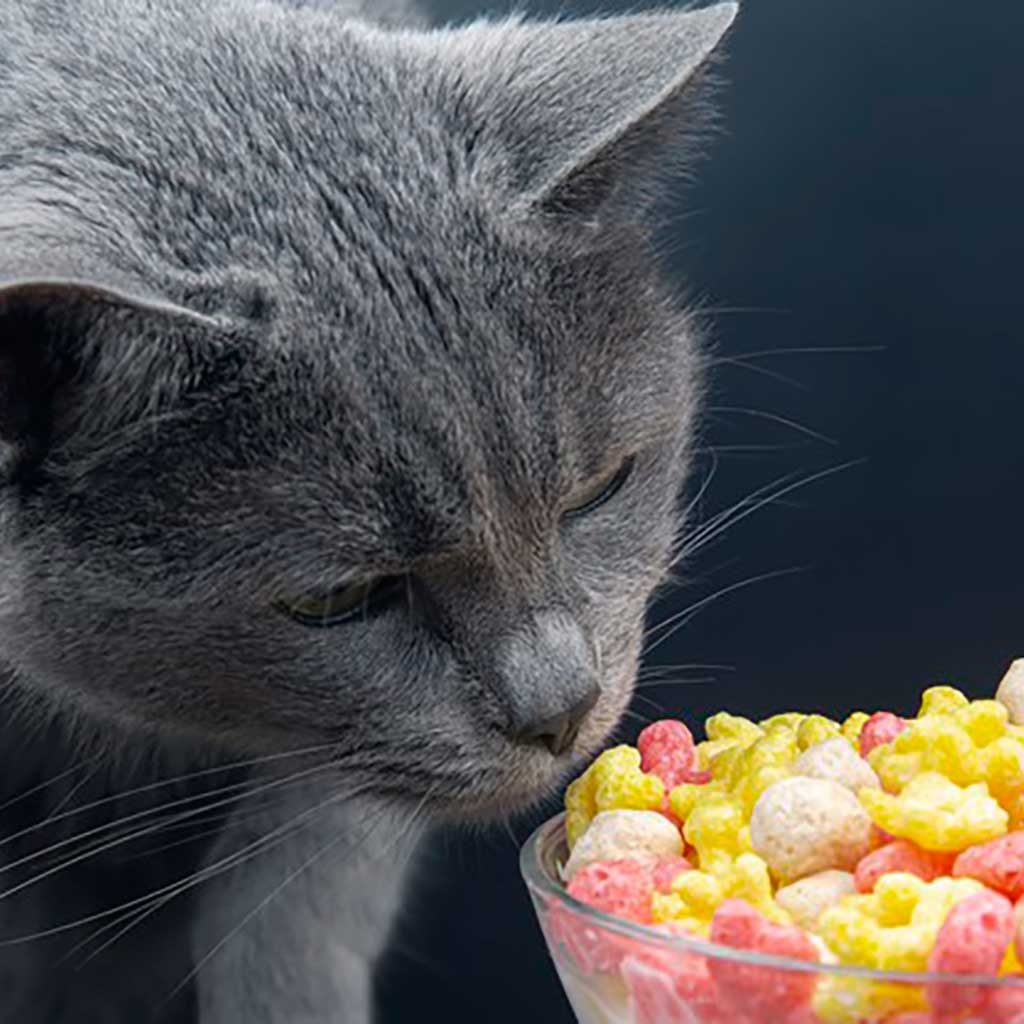
Since raspberries are an all round fruit, you can always buy some in your local store. You can find dried raspberries, raspberry yoghurt, or frozen raspberry.
Nevertheless, they have short shelf life hence you may have to keep on throwing the excess away to avoid them rotting inside the house.
It’s with this in mind why feeding your fur ball with raspberry-flavored foods and treats could be the better option. Such foodstuffs include yoghurt with fresh raspberries and granola, cereals or oat meal with raspberries. Raspberries are also common in jellies and jams.
Let’s take a closer look to yoghurt with fresh raspberries as an example. Without a doubt your feline friend won’t mind having yoghurt flavored raspberries especially when it’s frozen. The fruity milky smell plus the cooling factor is just what they need in the summer heat.
This is not to say that all cats love this kind of combination. The same way you may love pineapples but not pineapple on pizza, right? It’s possible that your fur baby likes plain raspberries which they can have the few times that you get to buy them.
Bottom-line: Don’t go stocking on raspberries for the sole purpose of feeding your cat.
Are Fruits Good for Cats?
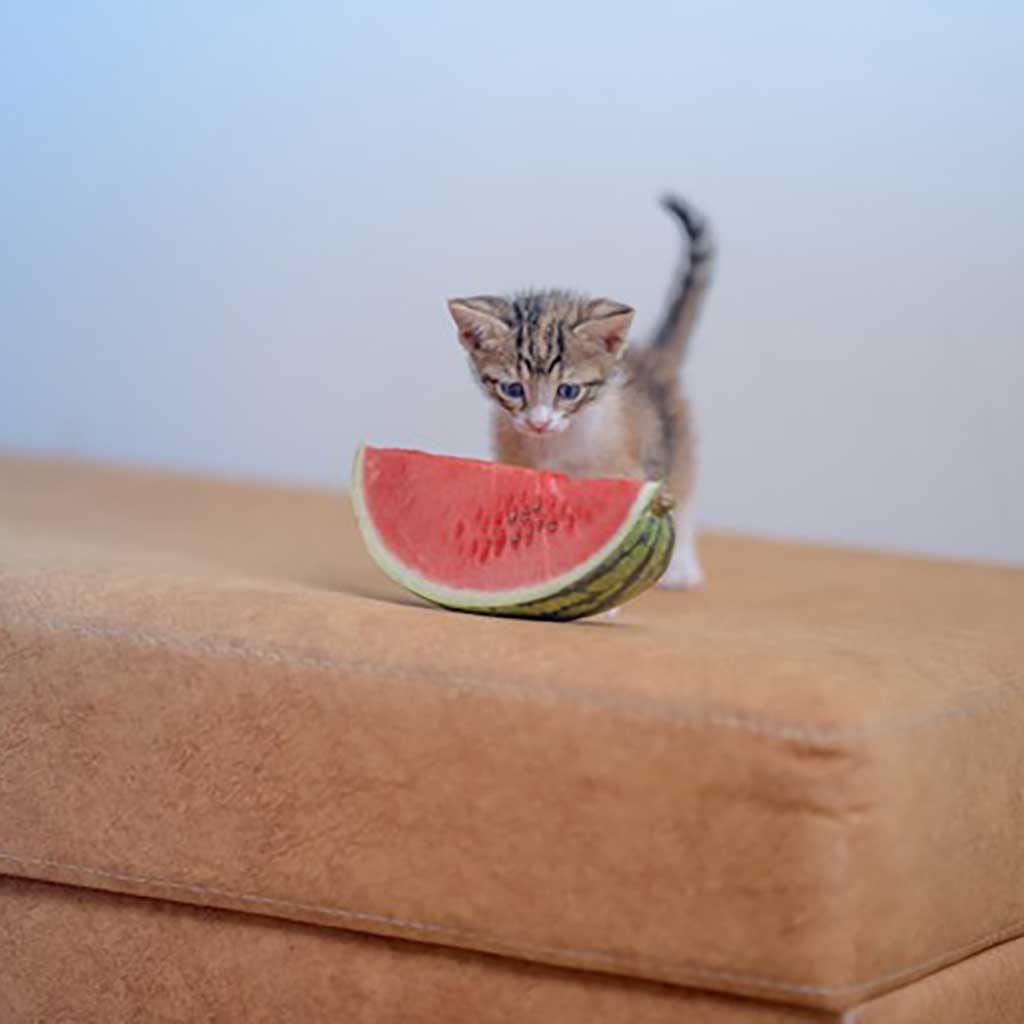
After answering “Can Cats Eat Raspberries?” you could be wondering whether there is safe fruit that is good for cats?
Well, we’ve got you covered.
First off, did you know that your cat’s natural nutrition is already balanced without having to introducing any fruit to its diet? Now you know.
Cats don’t really perceive sweetness, and as such, they are not automatically fond of fruits or even vegetables. Thus, they eat fruits just to satisfy their insatiable curiosity. This can be due to the appearance, texture, or just the mere fact that they see you enjoying the fruit, that attracts your cat’s attention.
This form of feeding is opportunistic as opposed to feeding for nutritional value. Consider that carnivores (your cat included) will starve and still not eat plants funny right? But also the same goes with strict herbivores that will not eat meat even at the blink of death; it’s simply called sticking to position on the food chain!
Having said that, natural cat food and raw cat food are one of the best recommendations for your cat’s diet. These diet help to retain the original nutrients of protein and other ingredients as opposed to other commercial cat food that are packed with fillers and processed ingredients.
What Fruits Can Cats Eat?
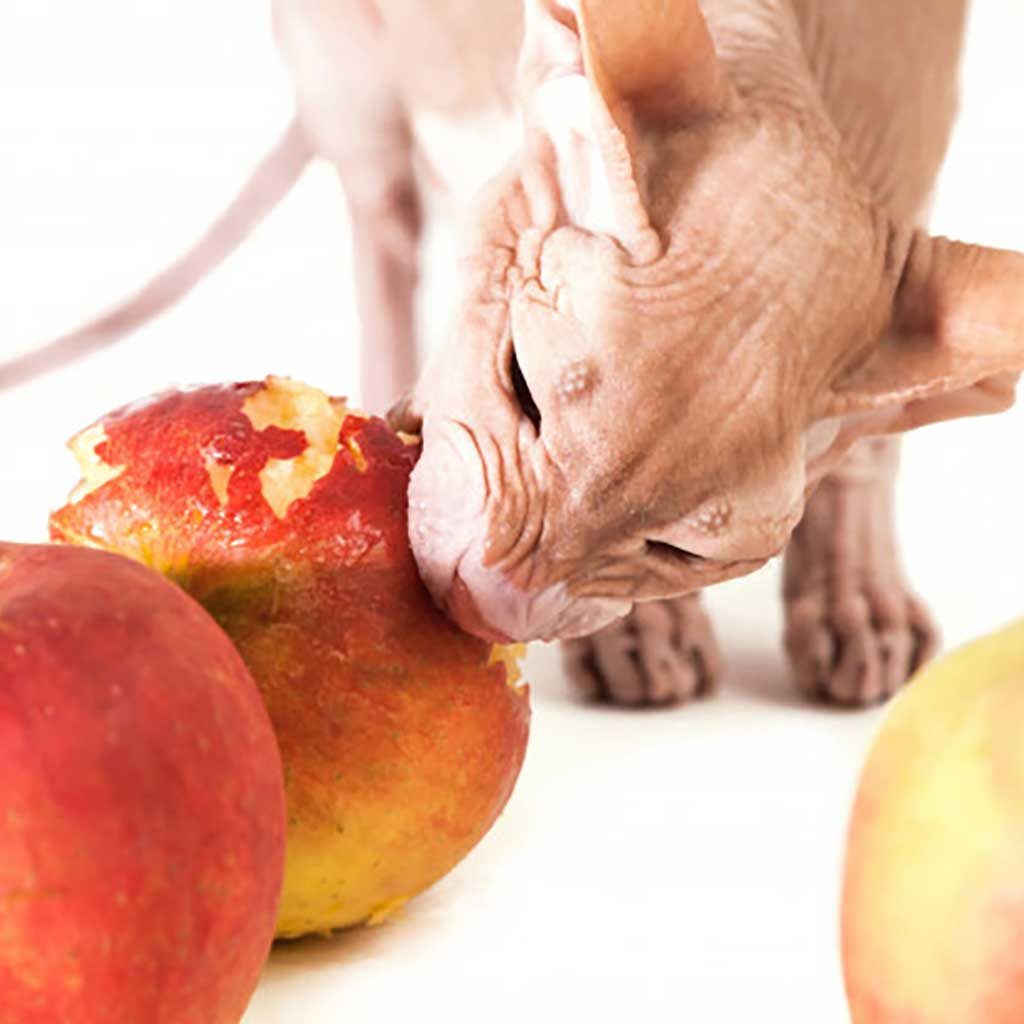
Always remember to wash all fruits before feeding your cat. Also, peel and also remove all seeds. More to this, always feed fruits in moderation and only as the occasional snack. To guide you in this, here is a list of the fruits to feed your cat.
- Apples
- Bananas
- Watermelon
- Raspberries
- Mango
- Pears
- Blueberries
- Pineapple
- Cantaloupe
- Strawberries
Other treats that you can feed your feline include cat food, canned fish, wet meats, eggs, and lean deli meats. Just to reiterate, even for the proteins, such as eggs, feed in small amounts to avoid the risk of potentially side effects.
To sum up, it’s important to inform your vet before adding fruits to your cat’s diet. This will ensure that what you feed them is safe and is in the vet’s records. In addition, it also aids the risk of serving your cat foods that may interfere with their medication, health problem, or prescribed diet.
What Fruits Can Cats not Eat?
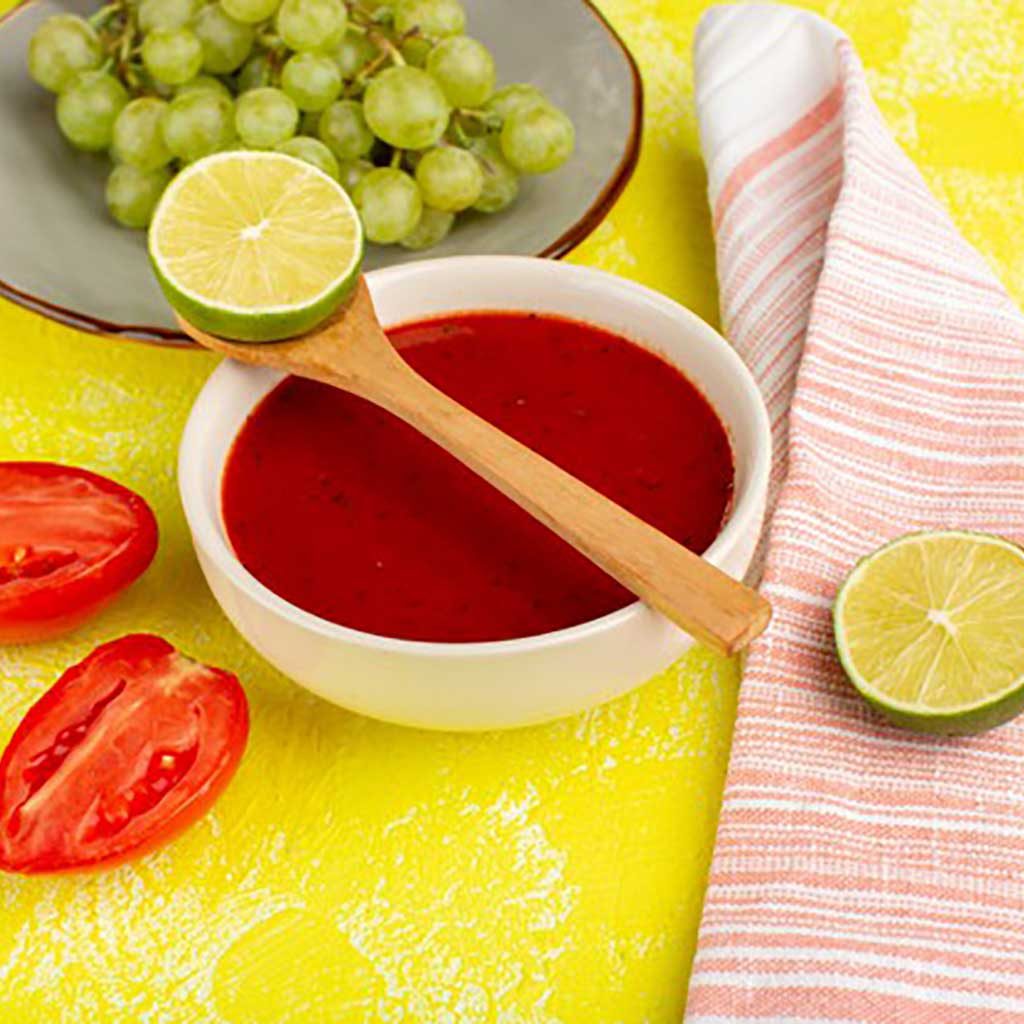
There are certain fruits that just aren’t good for your cat, even when served occasionally or as treat. These include:
Grapes and Raisins
These fruits pose serious threats to your cat digestive system including diarrhea, vomiting and also irritation. According to the ASPCA, grapes and raisins may cause acute kidney failures due to a toxic substance that’s still unknown.
Citrus Fruits
Fruits in this category include lemons, oranges, grapes, and limes. While they may not present problems except minor stomach upsets, it still helps to be cautious. Royal Society for the Prevention of Cruelty to Animals opines that citrus in “large amounts can cause diarrhea, irritation, vomiting, or even central nervous system depression.”
Tomatoes
Tomatoes have toxins that can make your feline friend physically weak, lose appetite, and drowsy. Specifically, these toxins are found in unripe tomatoes and the green parts of the plant including leaves and stems.
Also Read: 31 Most Toxic Food Your Cat Should Never Eat
Conclusion
Cats can eat raspberries despite their carnivores’ nature. Having being domesticated approximately 12000 years ago, we’ve introduced many new foods into the then wild animal diet. These include fruits, such as raspberries that are not listed as toxic foods but neither do they make part of the essential diet.
To be on the safe side, feed your cat no more than 2 berries twice or once a week.
A little bit of raspberry is good enough for your cat’s stomach and to have some boost of vitamin C in their bodies.
If you are a strict dog owner when preparing your pet food, this information is very good to keep in mind when taking care of their diet.
Fruit, though it became part of some cat’s diet, should not be an essential and vital part of their meal.
So when you are tempted to give your cat some Vitamin C treat from any fruit, moderation is the key.
Also, you may ask if other berry fruit such as strawberry, blueberry, huckleberry, gojiberry, billberry and some others that belong to berries family should take the same precaution. If your feline buddy is healthy, you can give him a little amount of non-toxic fruit to try in his diet.
BUT if your cat has medical conditions, introducing any food to his diet can interfere or harm his upset stomach, raise his sugar, or cause palpitations.
Human food nor dog food should not be given directly to our feline companion. While it could be tempting to give them treats like ice cream, vegetable sticks, yogurt, and citrus fruit, it is best to check with your vet or read some tips from your favorite Pet sites.
Always ensure that your vet is aware as you introduce your cat to a fruit diet for proper instruction on how to do it safely.
